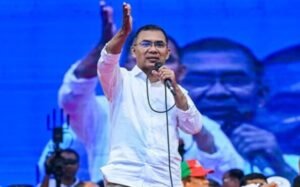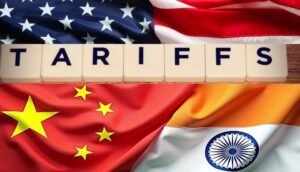Modi’s Hindu Nationalist BJP party won another general election in India

Modi has been congratulated on his re-election by world leaders including Russian President Vladimir Putin, Chinese President Xi Jinping and Israeli Prime Minister Benjamin Netanyahu
NEW DELHI: Narendra Modi has been declared victory in India’s general election, with his Hindu nationalist BJP party on track for a landslide win.
With around two-thirds of votes counted, the Bharatiya Janata Party (BJP) has already won over 342 out of 545 seats available, surpassing the absolute majority it won in 2014. At the time the 2014 victory was the first occasion in the last 30 years that India’s general election — the world’s largest democratic exercise — had produced a majority government.
Modi has been congratulated on his re-election by world leaders including Russian President Vladimir Putin, Chinese President Xi Jinping and Israeli Prime Minister Benjamin Netanyahu.
While exit polls released this week had predicted a major win for the BJP, many believed that Modi and his party would have to account for the failures of the last five years — under the BJP, unemployment, incidents of communal violence and lynchings are at an all-time high. Modi’s disastrous decision to remove some small value banknotes from circulation led to massive economic disruption, causing several people to lose their businesses and lives.
But the BJP’s nomination of a terror-accused candidate — Pragya Singh Thakur — revealed the party’s strategy for consolidating voters based on right-wing Hindu nationalism. As BuzzFeed News noted when following Thakur on the campaign trail, Thakur was a candidate cast in Modi’s image — and on Thursday, both Modi and Thakur won by massive margins by doubling down on the idea of the general election as a “religious war” between Hindu nationalists and their enemies — terrorists, anti-nationals, elite English-speaking liberals, Pakistanis, and Muslims.
Even before his first election as prime minister in 2014, when he was not the towering figure in India’s national imagination that he is now, Modi was an expert at creating highly charged, emotive political campaigns. This so-called “Modi wave” was witnessed when Modi was Chief Minister of Gujarat, a state in West India, where he based his campaign on creating “Gujarati asmita,” or state pride. In 2014, when he ran as a candidate for national elections, it was about development for every Indian, a promise of employment and wealth, going after the rich and their reserves of ill-earned money. This year, Modi and his party have created history once more by sticking to a narrative about reclaiming Hindu pride.
The BJP’s main political rival, the Indian National Congress, which has been India’s main governing party since independence, has won only 94 seats across the country so far.





